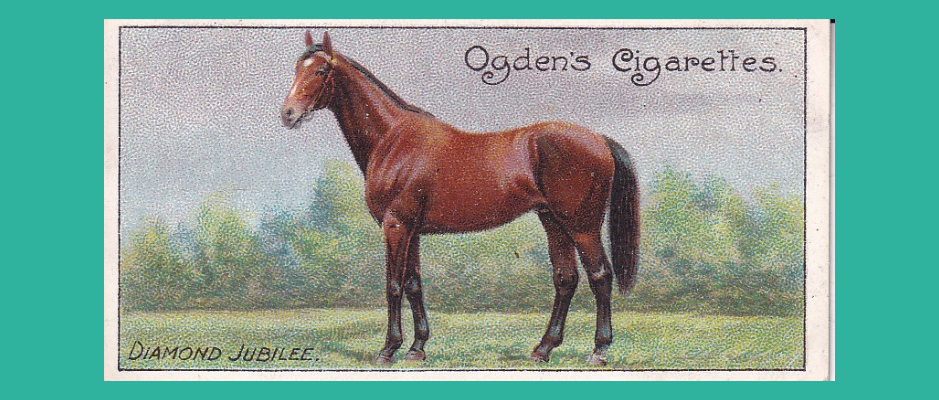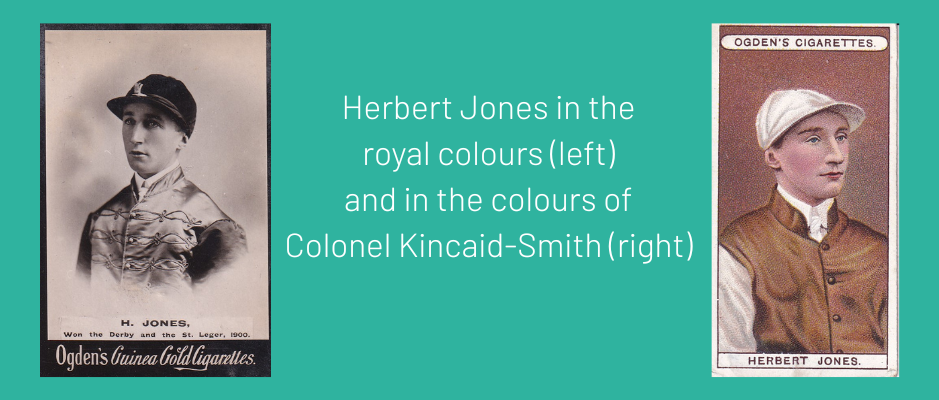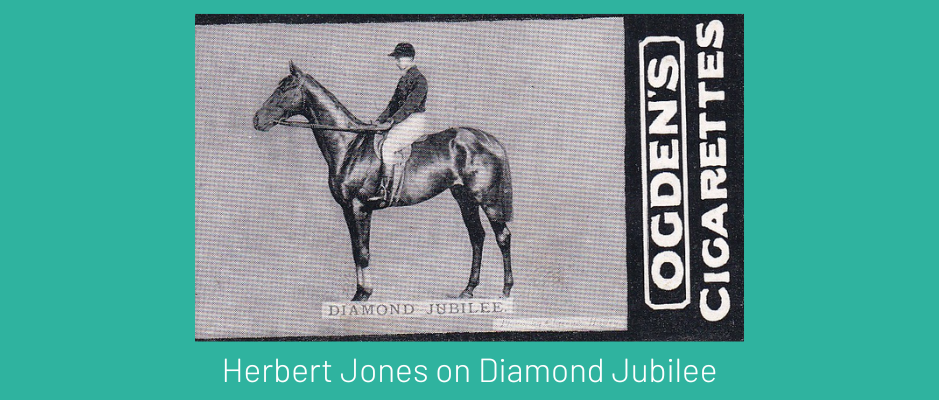Views
Herbert Jones, Diamond Jubilee and the triple let-down of 1901

Continuing the series from our volunteer Peter Bloor from earlier this year, we delve back into the historical archives of the legendary partnership between jockey Herbert Jones and Diamond Jubilee. Following the glorious success of the partnership in 1900, there was troublesome times ahead come the following year.
Herbert Jones and Diamond Jubilee – Triple Crown winners of 1900
When Diamond Jubilee and Herbert Jones returned to the winners’ enclosure at Doncaster having just won the St. Leger of 1900 the crowd was sure to give Herbert his fully-merited share of their cheers and applause. They recognised just what he, a 19-year-old apprentice, had achieved by calming, controlling and coaxing the sometimes violently temperamental horse to wins in the Two Thousand Guineas, the Derby and now in the Leger, a race he had ridden with a cool tactical awareness knowing that far more experienced jockeys were waiting for any mistake he might make.
“H. Jones could not possibly have ridden Diamond Jubilee better”
Diamond Jubilee’s owner the Prince of Wales recognised it too and retained Herbert as his jockey for 1901, when they were entered in the three Ten Thousand Pound races – for which the winning prize money was actually 10,000 sovereigns - the Princess of Wales’s Stakes, the Eclipse Stakes and the Jockey Club Stakes. Following the death of Queen Victoria the new King, Edward VII, leased his horses to the Duke of Devonshire, who sensibly also retained Herbert to ride Diamond Jubilee, but not even he could prevent the behaviour and performances of the Duke’s new acquisition from worsening race by race.

The Princess of Wales’s Stakes
Amidst reports that Diamond Jubilee had been worse-tempered than ever at home – and had missed 3 or 4 days’ training after injuring himself misbehaving in his stable – the stewards gave permission for him to proceed straight to the start of the Princess of Wales’s Stakes. He gave no trouble there, was one of the first away and was still leading at the Dip, but it was clear that the Mexican jockey Gomez on Epsom Lad could take the lead whenever he chose. This he did at the foot of the hill, from where he went on to win untroubled by half a length with Diamond Jubilee – a little short of training – unable to respond.
The Eclipse Stakes
Diamond Jubilee had however run a resolute race and responded whenever Herbert had asked anything of him, neither of which he did when they next met Gomez and Epsom Lad in the Eclipse a fortnight later. He behaved in the paddock but then lashed out two or three times on his way to the start where he displayed still worse temper, rearing up on his hind legs, backing into the fence and delaying the race by some 15 minutes. Herbert was finally able to calm and bring him into line, but not to coax a run from him on “one of his non-going days.” He did lead from the start with Epsom Lad and was still in the leading group of four at the last turn but was the first to drop out, unable – or perhaps unwilling – to cope with the pace, finishing fourth as Epsom Lad won by a head.
The Jockey Club Stakes
At Sandown there had been a sense that Diamond Jubilee had displayed stubbornness rather than anger and a suspicion that he had not responded when Herbert had asked him for an effort, a suspicion that was confirmed during the Jockey Club Stakes. His foul temper was accommodated again when he was saddled at his own stables and fitted with a very light bridle, yet still he refused to exert himself in a race in which he finished third, four lengths behind Epsom Lad, who easily re-passed and beat him for second place after running so wide into the straight that it cost him the race.

‘…the end of the anxiety must come as a tremendous relief’
The pre-Herbert Diamond Jubilee had re-surfaced. When ridden as a two-year-old by Jack Watts and Morny Cannon he had lashed out on his way to the start and behaved badly when he got there before either giving his utmost, making no effort at all or simply giving up, as he had at Goodwood when beaten by, as it happened, Epsom Lad. Watts or Cannon being up made no difference, he acted in the same way for both – and now, as a four-year-old he had behaved in identical fashion for his friend Herbert.
After three defeats in three races Diamond Jubilee was retired to stud, as had been the plan at the start of the season. The correspondent of the Morning Leader believed that no-one would be sorry, not racegoers and certainly not his trainer Richard Marsh or Herbert, for whom “the end of the anxiety they have each experienced must come as a tremendous relief.” He left with his reputation diminished, something Herbert’s was not – he retained the confidence of the King and eight years later would ride another Triple Crown contender, Minoru, for him.
References
The quotes and other information in this article are taken from The Times, the Sporting Life, the Sportsman, the Morning Leader and the Daily Express 1900 and 1901.
Images – Diamond Jubilee Ogdens 1907, Herbert Jones (black and white) Ogdens 1901 and (colour) 1906, Herbert Jones on Diamond Jubilee Ogdens 1901
Comments: 0 (Add)
In this section
Volunteers
We’re always on the lookout for volunteers to help run our clubs all across England, Scotland and Wales – find out more here.
Find a club
Want to know where your nearest Sporting Memories club is? View our Club Finder page here.